Foods That Boost Your Immune – Immune System Boosters. The immune system is a complex network of cells, tissues, and organs that work together to defend the body against infections and other foreign invaders. It is an essential component of our overall health and well-being. There are many different ways to boost the immune system, including getting enough sleep, exercising regularly, and managing stress.
Ways to boost your immune system
One of the most effective ways to boost the immune system is through proper nutrition. A healthy diet that is rich in fruits, vegetables, and other nutrient-dense foods can help to support immune function. Some specific immune-boosting foods include citrus fruits, red bell peppers, garlic, ginger, spinach, turmeric, almonds, green tea, papaya, and kiwi. These foods are high in vitamins, minerals, and other nutrients that can help to support immune function.

In addition to a healthy diet, it’s also important to stay hydrated by drinking plenty of water. Adequate hydration can help to support immune function, as well as overall health and well-being. Exercise is another important aspect of immune health. Regular physical activity can help to boost the immune system by increasing blood flow. It also helps in circulation, which can help to deliver nutrients and oxygen to the body’s cells and tissues.
Finally, managing stress is important for immune health. Chronic stress can weaken the immune system, so it’s important to find ways to reduce stress and promote relaxation. This can include activities such as meditation, yoga, and deep breathing.
Overall, there are many different ways to boost the immune system and support overall health and well-being. By eating a healthy diet, staying hydrated, exercising regularly, and managing stress. You can help to support your immune system and maintain optimal health.
Foods that boost the immune system
There are many foods that can boost the immune system and help to support overall health and well-being. Here are a few examples:
Citrus fruits

Citrus fruits, such as oranges, lemons, and grapefruits, are a good source of vitamin C. Which can help to support the immune system. Vitamin C is a powerful antioxidant that helps to protect cells from damage and supports immune function. It can also help to reduce the severity and duration of colds and other infections.
In addition to vitamin C, citrus fruits are also a good source of other nutrients that can help to support immune function such as folate, potassium, and fiber. They are also low in calories and high in water content, making them a hydrating and nutrient-dense choice for boosting the immune system.
Red bell peppers
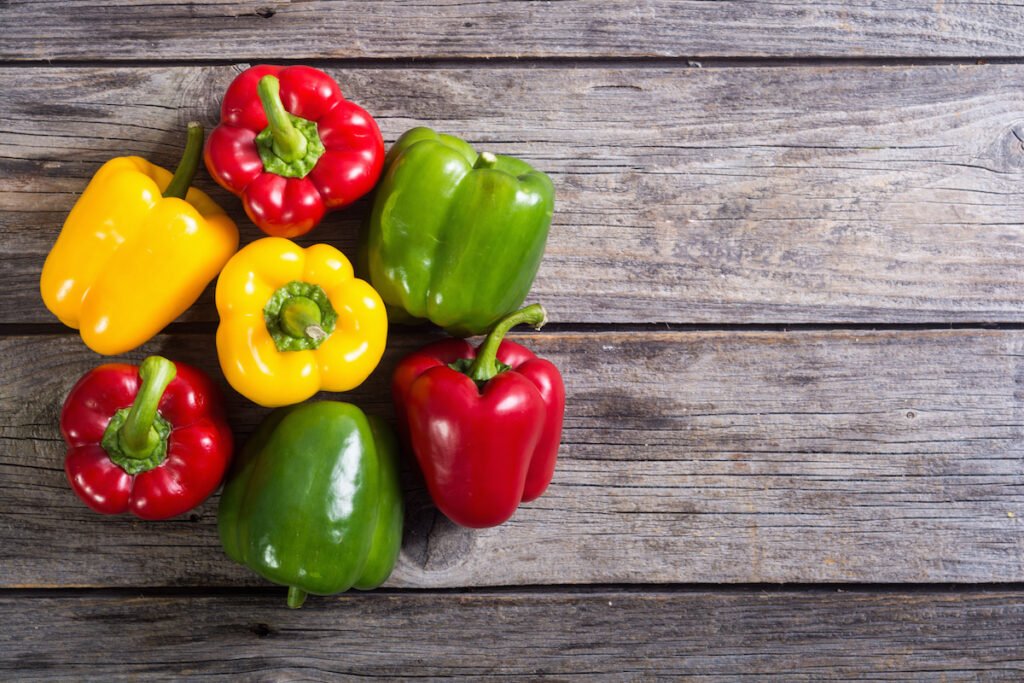
Red bell peppers are a good source of vitamin C, which can help to support the immune system. Vitamin C is a powerful antioxidant that helps to protect cells from damage and supports immune function. It can also help to reduce the severity and duration of colds and other infections.
In addition to vitamin C, red bell peppers are also a good source of other nutrients that can help to support immune function, such as vitamin A, folate, and potassium. They are also low in calories and high in water content, making them a hydrating and nutrient-dense choice for boosting the immune system.
Red bell peppers are also a good source of antioxidants, which can help to protect cells from damage and support immune function. They contain a number of different antioxidants, including beta carotene, lycopene, and lutein.
Garlic
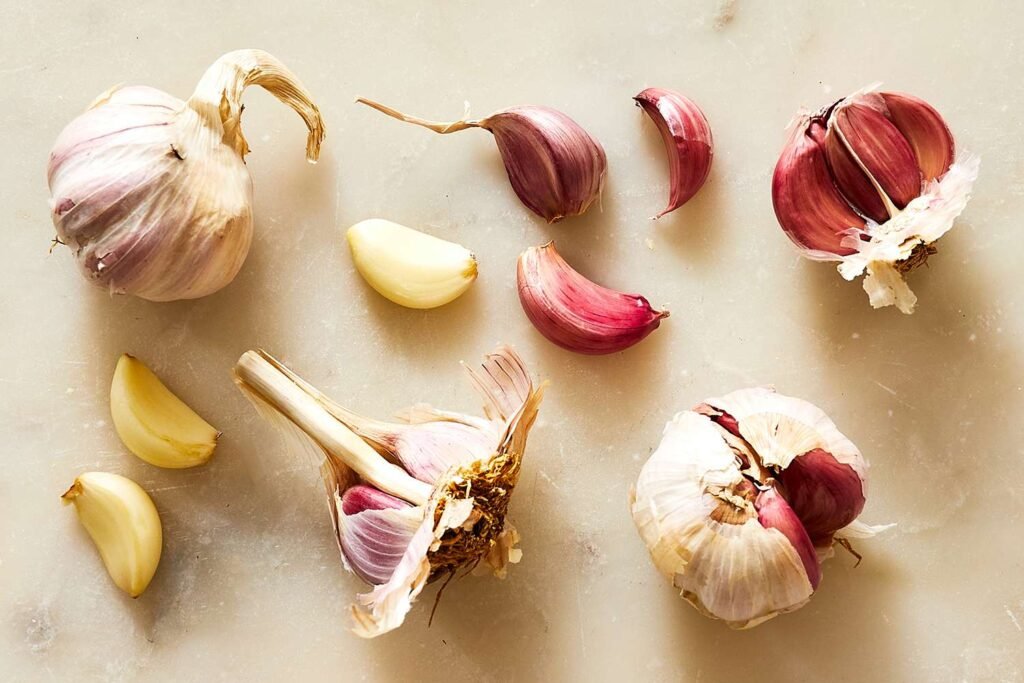
Garlic contains compounds that may have immune-boosting properties. Garlic contains allicin, a compound that has been shown to have antimicrobial properties and may help to fight off infections. It may also have anti-inflammatory properties and may help to reduce inflammation in the body, which can support immune function.
However, it’s important to note that while garlic may have some immune-boosting properties. It is just one part of a healthy diet. A well-rounded diet that includes a variety of fruits, vegetables, and other nutrient-dense foods is important for overall health and well-being, including immune function. It’s also important to drink plenty of water and get enough sleep, as these can also help to support immune function.
Spinach
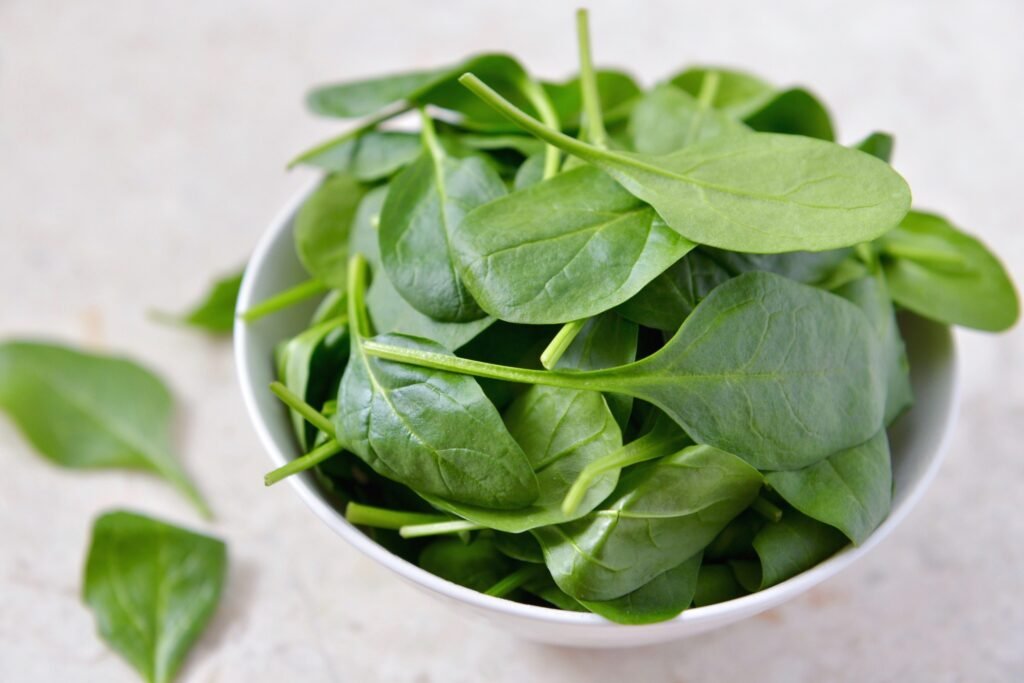
Spinach is a good source of antioxidants and beta carotene, which can help to support the immune system. Antioxidants are compounds that help to protect cells from damage, and they are found in a variety of fruits, vegetables, and other plant-based foods. Beta carotene is a type of antioxidant that is converted to vitamin A in the body, which is important for immune function.
Spinach is also a good source of other nutrients that can help to support immune function, such as vitamin C, folate, and iron. It is also low in calories and high in water content, making it a hydrating and nutrient-dense choice for boosting the immune system.
Turmeric
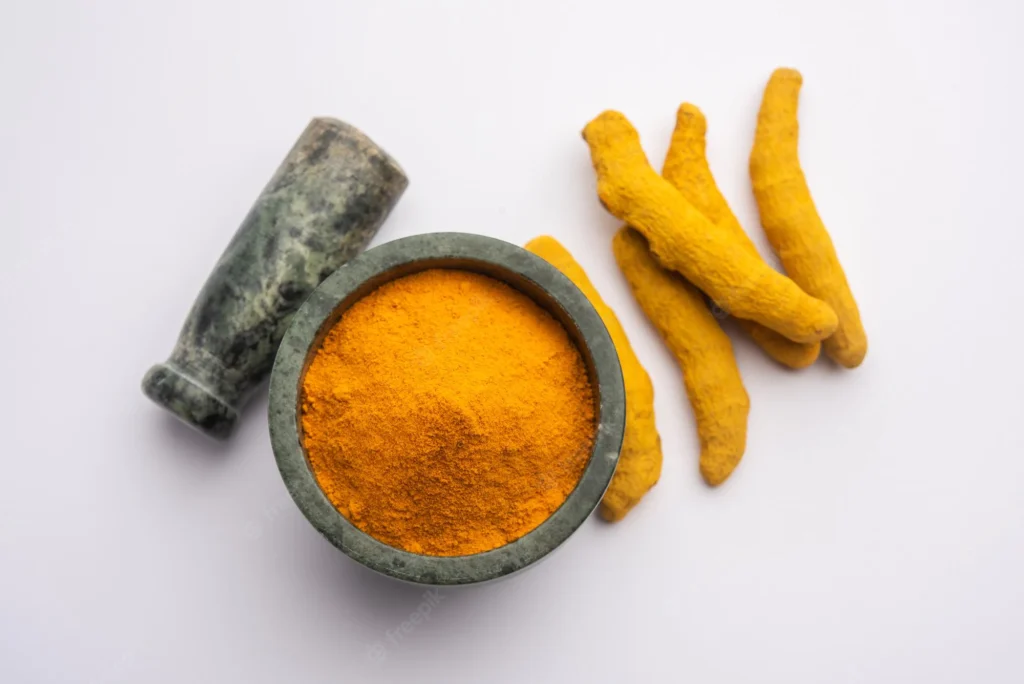
Turmeric is a spice that is commonly used in Indian and Middle Eastern cuisine. It is a yellow-orange color and has a warm, slightly bitter taste. It is often used as a natural food coloring agent, as well as for its flavor and potential health benefits.
Turmeric contains a compound called curcumin, which has antioxidant and anti-inflammatory properties. Curcumin has been shown to have a number of potential health benefits, including reducing inflammation and supporting immune function.
Almonds
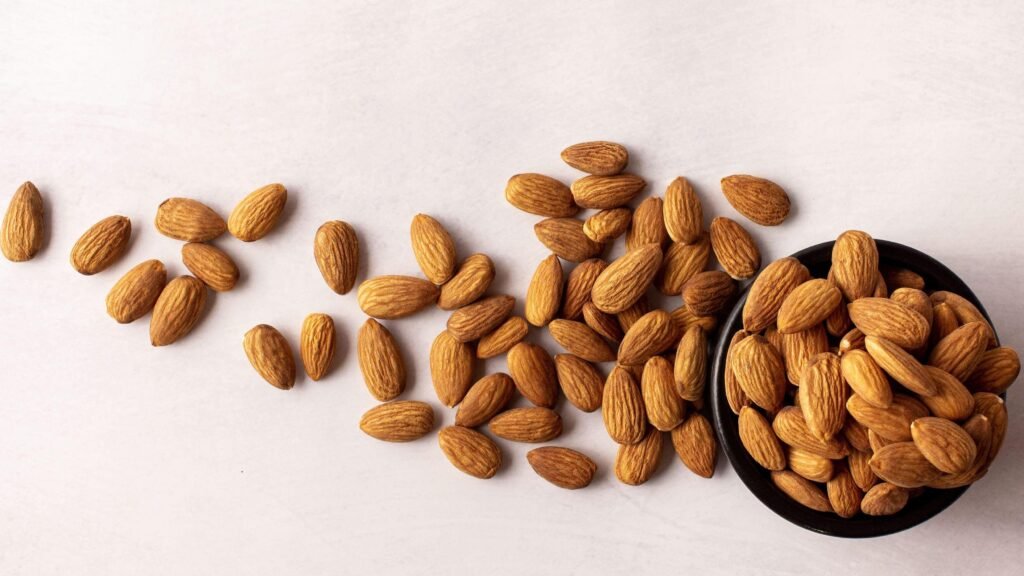
Almonds are a good source of nutrients that can help to support immune function. They are a good source of vitamin E, which is a powerful antioxidant that helps to protect cells from damage and supports immune function. Vitamin E is important for maintaining the integrity of cell membranes and supporting the immune system’s ability to fight off infections and other foreign invaders.
Almonds are also a good source of other nutrients that can help to support immune function, such as protein, fiber, and healthy fats. They are low in calories and high in nutrients, making them a nutrient-dense choice for boosting the immune system.
Green tea

Green tea is a good source of antioxidants, which are compounds that help to protect cells from damage. Green tea is made from the leaves of the Camellia sinensis plant and is a popular beverage in many parts of the world. It is high in a type of antioxidant called catechins, which have been shown to have a number of potential health benefits, including supporting immune function.
Green tea is also a good source of other nutrients that can help to support immune function, such as vitamin C, manganese, and zinc. It is low in calories and has a number of potential health benefits, including supporting weight loss, reducing the risk of heart disease, and promoting overall health and well-being.
Papaya

Papaya is a tropical fruit that is a good source of nutrients that can help to support immune function. It is high in vitamin C, which is a powerful antioxidant that helps to protect cells from damage and supports immune function. Vitamin C can also help to reduce the severity and duration of colds and other infections.
Papaya is also a good source of other nutrients that can help to support immune function, such as vitamin A, potassium, and fiber. It is low in calories and high in water content, making it a hydrating and nutrient-dense choice for boosting the immune system.
Kiwi
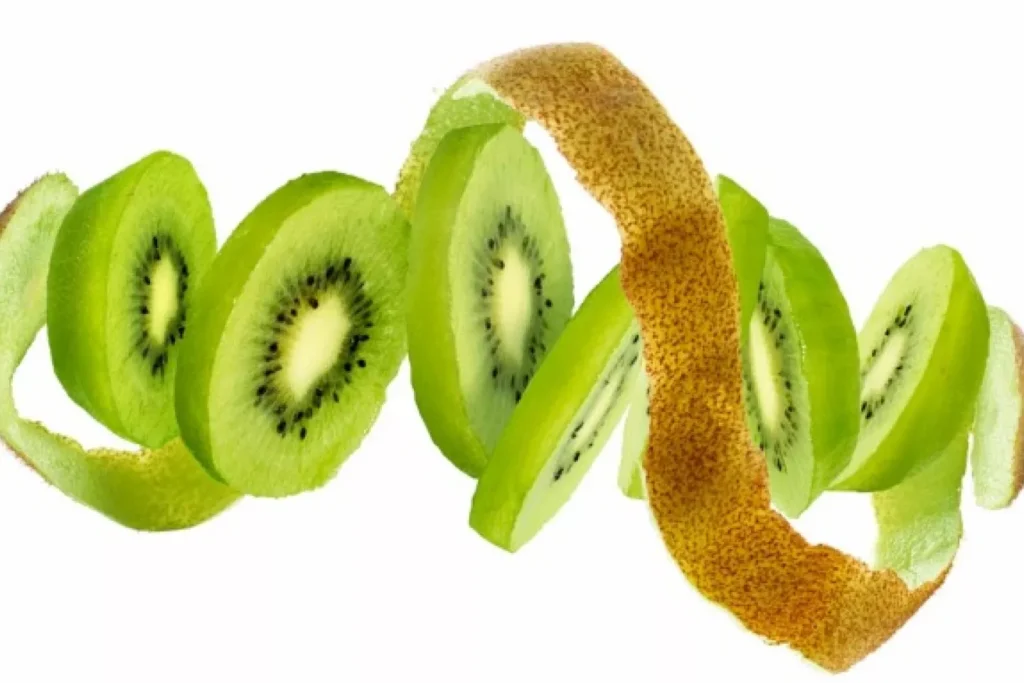
Kiwi is a tropical fruit that is a good source of nutrients that can help to support immune function. It is high in vitamin C, which is a powerful antioxidant that helps to protect cells from damage and supports immune function. Vitamin C can also help to reduce the severity and duration of colds and other infections.
Kiwi is also a good source of other nutrients that can help to support immune function, such as vitamin E, potassium, and fiber. It is low in calories and high in water content, making it a hydrating and nutrient-dense choice for boosting the immune system.
In addition to its immune-boosting properties, kiwi is also a good source of antioxidants, which can help to protect cells from damage and support immune function. It contains a number of different antioxidants, including vitamin C, lutein, and zeaxanthin.
It’s important to remember that a healthy diet that includes a variety of fruits, vegetables, and other nutrient-dense foods can help to support the immune system. It’s also important to drink plenty of water and get enough sleep, as these can also help to support immune function.
For More checkout : Can Cold Water Increase Weight?
Conclusion
In conclusion, the immune system is a complex network of cells, tissues, and organs that work together to defend the body against infections and other foreign invaders. It is an essential component of our overall health and well-being. There are many different foods that can help to boost the immune system and support overall health and well-being.
Some specific immune-boosting foods include citrus fruits, red bell peppers, garlic, ginger, spinach, turmeric, almonds, green tea, papaya, and kiwi. These foods are high in vitamins, minerals, and other nutrients that can help to support immune function.
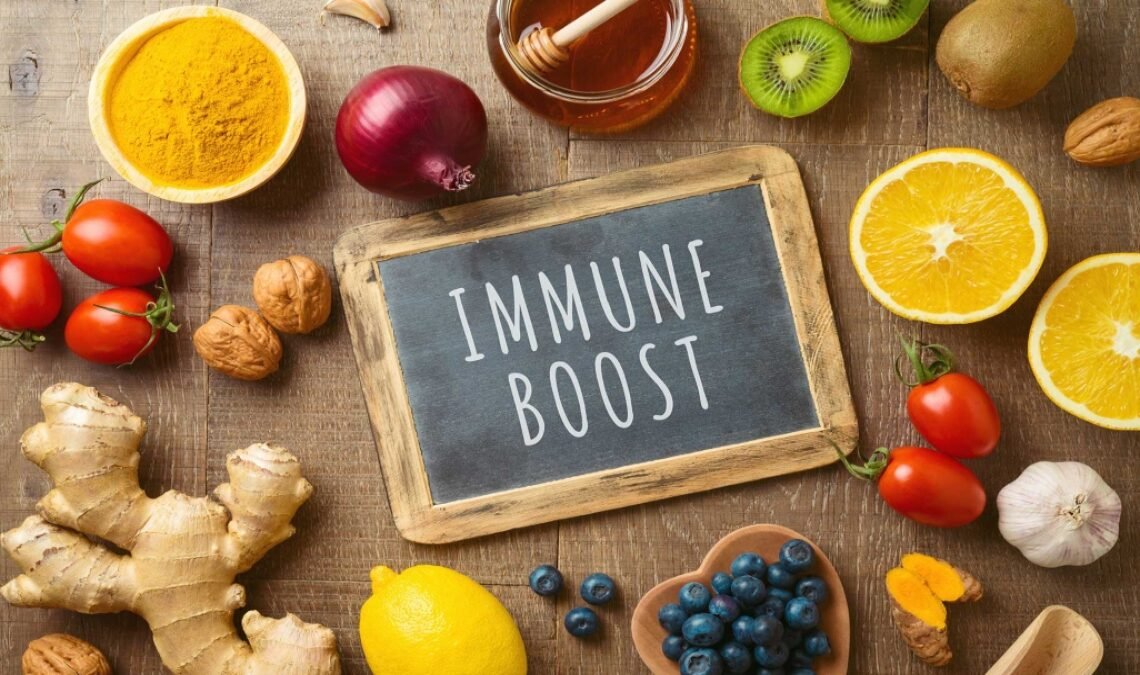
Thanks for sharing. I read many of your blog posts, cool, your blog is very good.